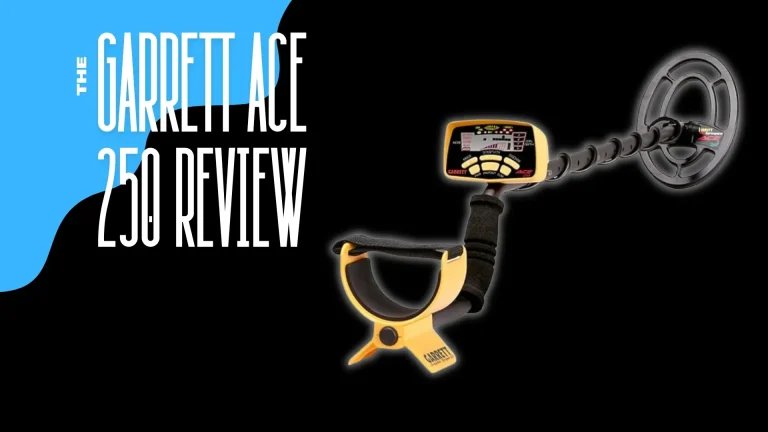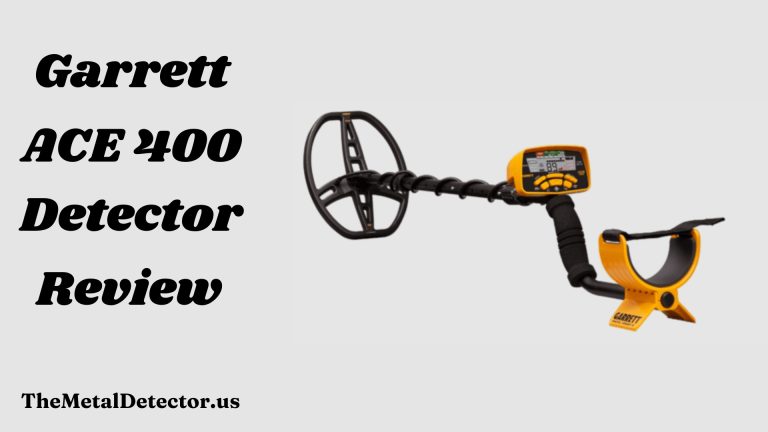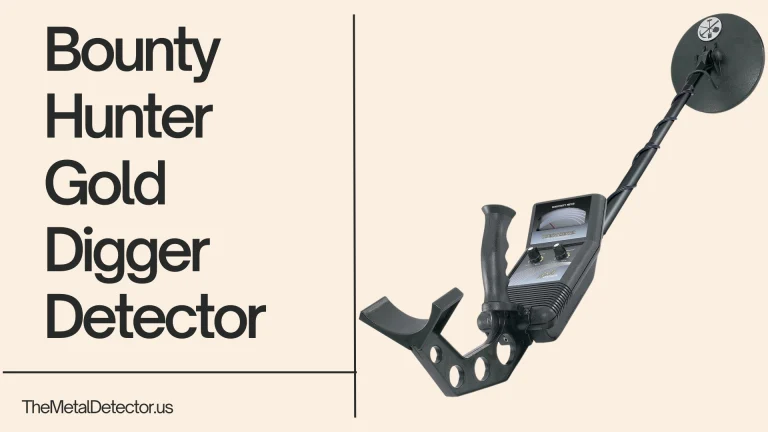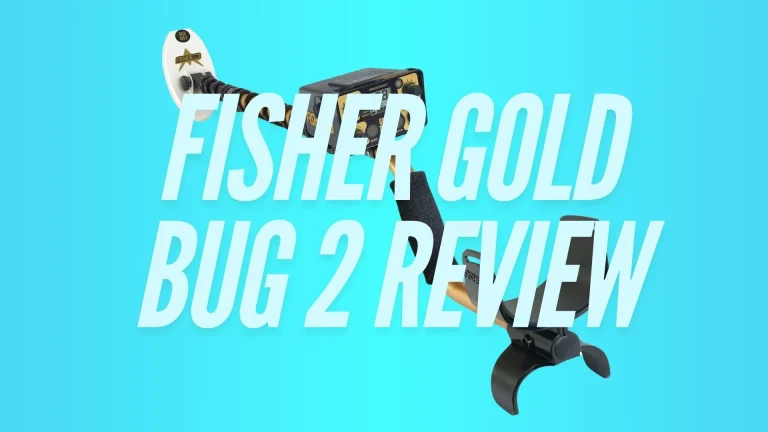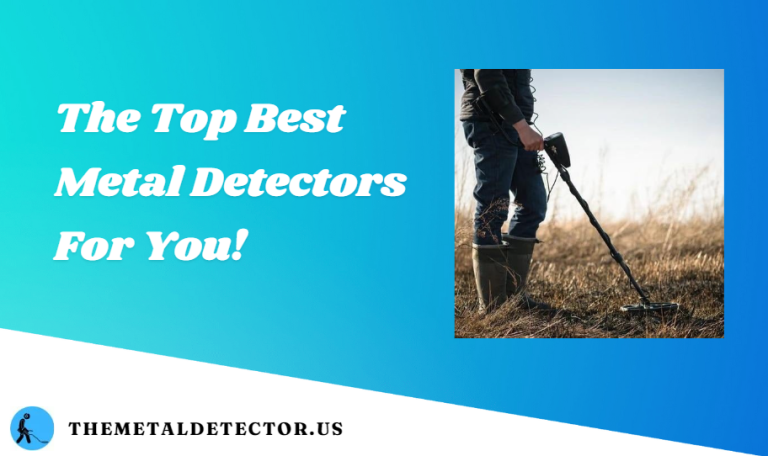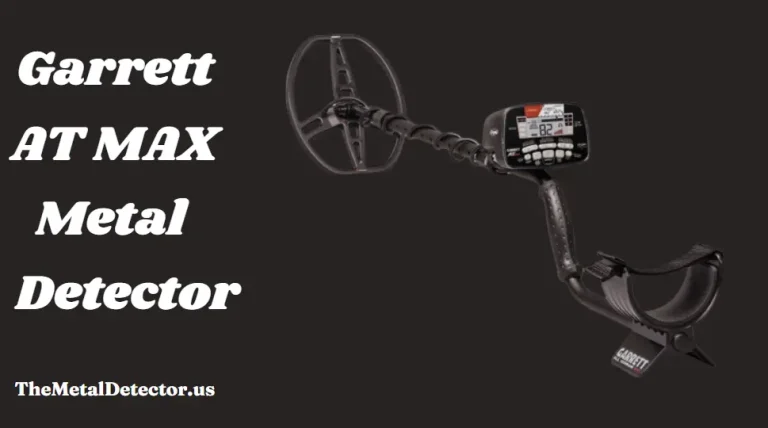Best Metal Detectors for Beginners: Essential Features and Reviews 2025
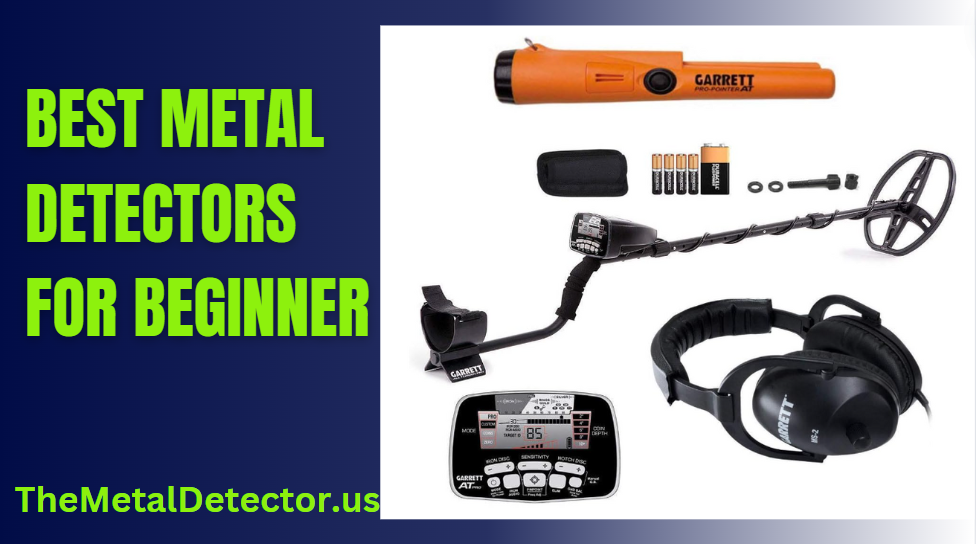
Starting the journey of metal detecting can be an exciting and rewarding adventure. For beginners, it is essential to choose a reliable and good metal detector so that they can start their journey with a smooth experience. The best metal detectors for beginners need to be built powerful enough to provide the beginners with a good feel.
Choosing the best metal detector can be a difficult task for beginners. You have to look for helpful features and affordability at the same time. In this detailed guide, I will provide many options to give you a reliable start in your metal detecting journey. So, let’s begin!
List Of The Best Metal Detectors For Beginners
Here is a list of the best metal detectors that offer great features while staying within your budget.
Read the review of the best overall metal detectors.
Reviews Of The Best Metal Detectors For Beginners
Here are the reviews of metal detectors that would be a great choice for beginners, considering their needs and budget.
Garrett AT Pro Metal Detector
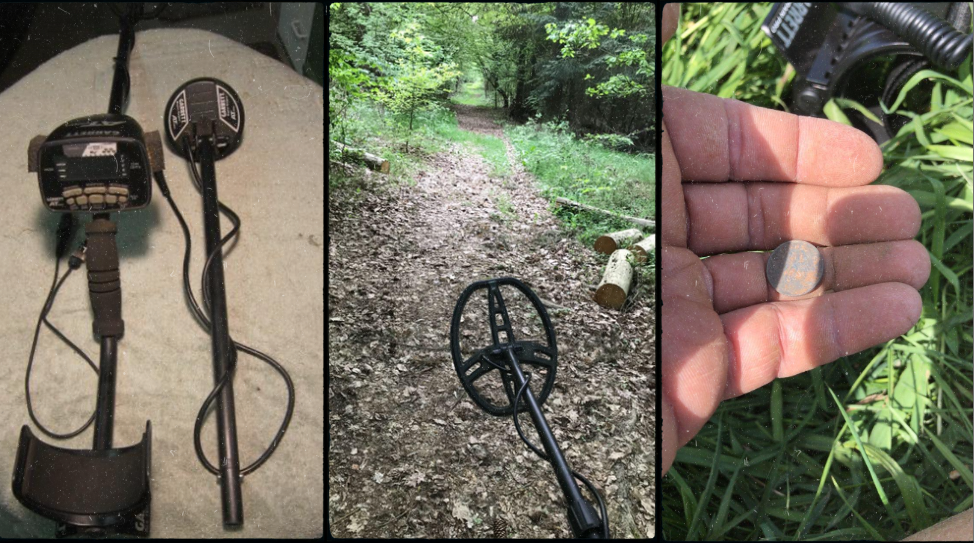
The Garrett AT Pro is the popular choice among beginners. With its user-friendly features, you can find it a perfect device to start your metal detecting journey. I personally like its automatic ground-balancing feature, which works perfectly in different soil conditions. You can also use this feature manually as you progress. The metal detector operates on a 15kHz frequency, giving you accurate results in detecting small targets like coins, gold nuggets, jewellery, etc. It is a waterproof device that you can use underwater to detect precious metals.
While detecting different types of metals, it shows you a Digital Targeted ID on its LCD screen display, which gives you the numerical value of the detected metal to decide whether to dig. In this way, it can save your time by preventing you from unnecessary digging. Moreover, in trashy areas where the detecting becomes a little bit more difficult because of an excessive amount of waste iron, you can use its Iron audio feature, which allows you to hear discriminated iron targets.
Check our insightful article on the importance of detectors in schools.
| Feature | Description |
|---|---|
| Operating Frequency | 15 kHz |
| Search Coil | 8.5″ x 11″ DD PROformance |
| Target ID | Digital target ID with 0 to 99 scale |
| Iron Discrimination Segments | 40 |
| Notch Discrimination | Adjustable |
| Pro Mode Audio | Proportional audio and tone roll audio |
| Iron Audio | Yes |
| Ground Balance | Automatic and manual |
| Waterproof Rating | Fully submersible up to 10 feet (3 meters) |
| Sensitivity/Depth Adjustments | 8 settings |
| Battery | 4 AA batteries (included), approximately 20-30 hours of operation |
| Weight | 3.03 pounds (1.37 kg) |
| Length | Adjustable from 42″ to 51″ (1.06m – 1.29m) |
| Warranty | 2-year warranty |
Pros
Cons
Nokta Simplex BT Metal Detector
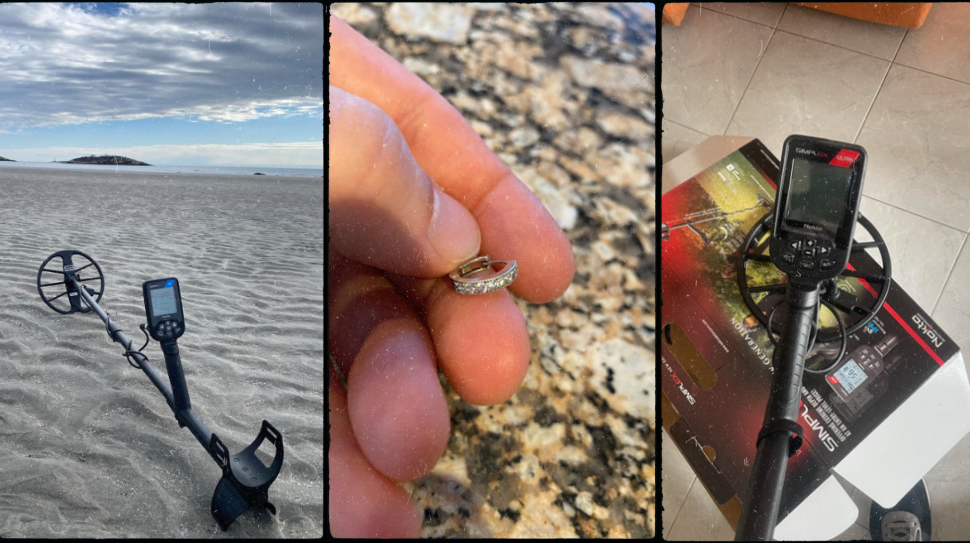
The next standout device for beginners is the Nokta Simplex BT. It provides exceptional features that can help you in your fruitful metal detecting. This device offers four different search mode options: Park, Field, Water, and All Metals. Initially, you can set it to the default setting in each mode so the device can automatically adjust to the ground conditions. With its 12kHz frequency operation, you can detect large and small metals more efficiently by changing the sensitivity.
The Simplex BT provides an exceptional pinpoint feature that allows you to find the exact position of the detected metal. No other metal detector provides this feature at such a reasonable price. So, if you are starting your metal detecting journey and looking for an efficient and budget-friendly metal detector, the Nokta Simplex BT will be a great choice.
You might be interested in How Deep Can a Metal Detector Detect
| Feature | Description |
|---|---|
| Operating Frequency | 12 kHz |
| Search Coil | 11” DD coil |
| Target ID | Digital target ID with 0 to 99 scale |
| Ground Balance | Automatic |
| Discrimination | Adjustable notch discrimination |
| Audio Tones | Multiple audio tones for different targets |
| Waterproof Rating | Fully submersible up to 10 feet (3 meters) |
| Sensitivity/Depth Adjustments | Adjustable sensitivity |
| Wireless Audio | Compatible with wireless headphones |
| Battery | Built-in rechargeable battery, approximately 20-30 hours of operation |
| Weight | 2.9 pounds (1.3 kg) |
| Length | Adjustable from 25” to 52” (63 cm to 132 cm) |
| Warranty | 2-year limited warranty |
Pros
Cons
Garrett Ace 400 Metal Detector
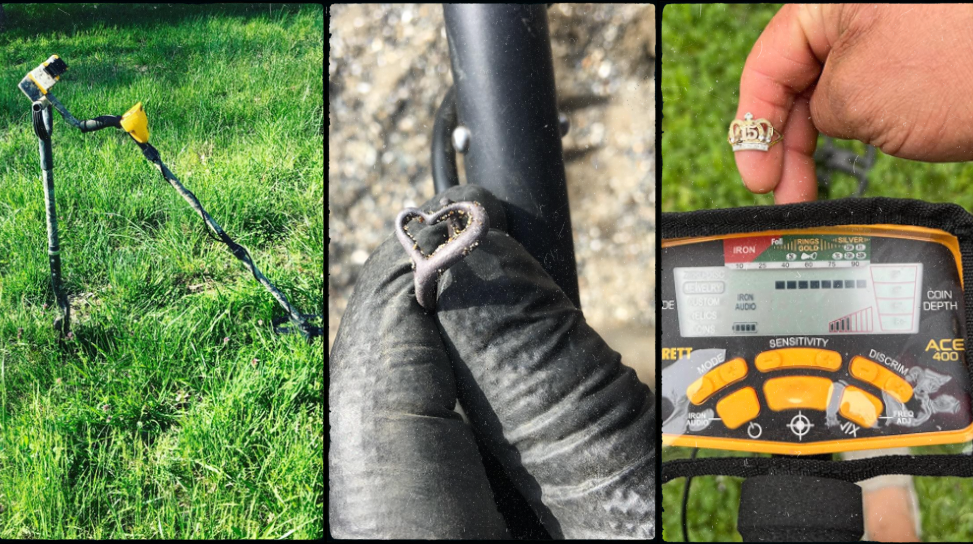
The Garrett Ace 400 is another standard metal detector in the list of beginner metal detectors. It’s lightweight, accurate, and easy to use. I personally admire this metal detector because of its strong build quality and accuracy in detecting metals. By using its five different search modes, Zero-Disc, Jewelry, Custom, Relics, and Coins, you can search for different types of targets precisely. As it works at 10kHz frequency, you can also use it to find small targets in depth.
It is not fully submersible in water. Its coil is waterproof, while other non-coil components are not waterproof. So you can only use it on wet sand near beaches. Besides this, the Ace 400 also comes with a pinpointer, which can give you the exact location of the detected metal so you can dig for the metal accurately. The device also shows the numerical values of the targeted metal on its LCD screen display, or you can hear the iron discrimination sounds, which can help you to identify the target before you start digging.
| Feature | Description |
|---|---|
| Operating Frequency | 10 kHz |
| Search Modes | 5 (Zero-Disc, Jewelry, Custom, Relics, Coins) |
| Iron Audio | Yes |
| Digital Target ID | Yes, 0-99 scale |
| Discrimination Segments | 12 |
| Notch Discrimination | Adjustable |
| Pinpointing | Yes |
| Sensitivity/Depth Adjustments | 8 settings |
| Search Coil | 8.5″ x 11″ PROformance™ submersible search coil |
| Audio Tones | 3 |
| Weight | 2.9 lbs (1.32 kg) |
| Length | Adjustable from 40″ to 53″ |
| Batteries | 4 AA batteries (included) |
| Headphone Jack | Yes, 1/4″ and 1/8″ jacks |
| Warranty | 2 years warranty |
Pros
Cons
Fisher F22 Metal Detector
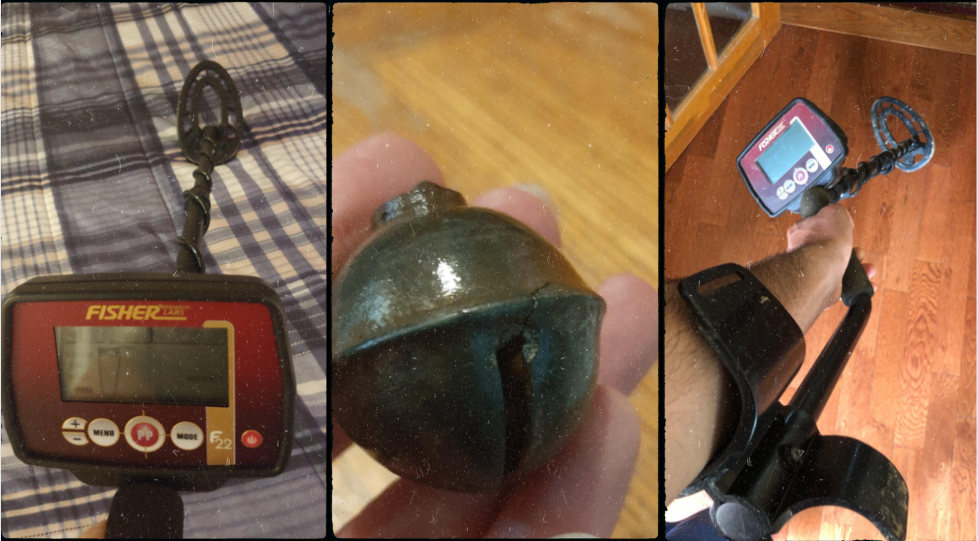
As a beginner in metal detecting, the Fisher F22 has worked great for me. The device works at a frequency of 7.69kHz, which means it’s sensitive enough to find coins, jewellery, and other metal targets. One of its standout features is that it is resistant to different weather conditions. You can use this device anywhere without being worried about it. As a newbie, you can start by using the default setting in each search mode. Later on, you can customize it to get more fruitful results from it.
The machine also provides you with iron discrimination and a Targeted ID feature, which you can use in an iron-rich environment to ignore the waste targets and concentrate on the desired targets. The device is not fully submersible, so you can not use it in deep water, but its coil is waterproof, which allows you to detect metals on wet soil. The overall build quality of this device is solid. You can carry it anywhere as it can bear harsh conditions strongly.
| Feature | Description |
|---|---|
| Operating Frequency | 7.69 kHz |
| Search Modes | 4 (Jewelry, Coin, Artifact, Custom) |
| Target ID | Numeric 0-99 |
| Discrimination Segments | 9 |
| Notch Discrimination | Adjustable |
| Pinpointing | Yes |
| Sensitivity/Depth Adjustments | 10 levels |
| Search Coil | 9” Concentric Elliptical Waterproof Search Coil |
| Audio Tones | 4-tone audio ID |
| Weight | 2.3 lbs (1.04 kg) |
| Length | Adjustable from 40″ to 53″ |
| Batteries | 2 AA batteries (up to 25-30 hours of use) |
| Weather Resistance | Weatherproof (can be used in rain and wet conditions) |
| Headphone Jack | Yes, 1/4″ jack |
| Warranty | 5 years |
Pros
Cons
7 Factors to Consider Before Choosing the Right Metal Detector
Choosing a metal detector for a beginner can be thrilling. Here are seven factors to consider before choosing a suitable detector.
Budget
Your budget will be your first priority when choosing a suitable metal detector. Metal detectors range from affordable to expensive. As a beginner, you should consider an affordable entry-level metal detector that offers essential features at an affordable price. As you proceed, you can move to advanced detectors for more deep and comprehensive searches.
Type of Metal Detector
While buying a metal detector, it is crucial to understand the different types of metal detectors. VLF (Very Low Frequency) metal detectors are the most common type of metal detector. These metal detectors are affordable and suitable for a wide range of metals. As a beginner, you can consider the VLF metal detectors over others.
PI and multi-frequency metal detectors are suitable for experienced detectorists as they are used for more comprehensive and deep searches. These metal detectors are expensive and also challenging to operate.
Operating Frequency
The operating frequency of metal detectors affects their sensitivity to different types of metals. Low-frequency (3 -7 kHz) metal detectors are suitable for more extensive and deeper targets, while high-frequency (15 – 30 kHz) metal detectors are ideal for small and shallow targets. So, as a beginner, you can choose a metal detector with a frequency range of 5 – 15 kHz.
Weight and Usability
The weight and efficiency of metal detectors are vital, especially for beginners who spend more time metal detecting. Lightweight metal detectors are ideal for beginners as they don’t cause detectorists to fatigue. As a beginner, you have to spend more time metal detecting to get the desired results. So you should choose a lightweight metal detector that you can carry easily. Also, choose models with a smooth grip and adjustable shaft so you can customize it to your height.
Search coil type and size
The search coil is the part of the detector that interacts with the ground to detect metal objects. Coils come in various sizes and shapes, each suited for different tasks. Concentric coils are the most common type of search coils, and they are good for general-purpose detection. They provide excellent discrimination and pinpointing capabilities. Double-D coils are famous for better depth and mineralization handling. They are ideal for challenging soil conditions.
For beginners, a coil size between 8 and 10 inches is recommended. This size balances depth and coverage, making it easier to find targets without missing smaller items.
Ground Balance
Ground balance is a feature that helps the detector filter out mineralization in the soil, which can cause false signals. There are three types of ground balance:
- Preset Ground Balance: This fixed setting is found in most entry-level detectors and works well in highly mineralized areas.
- Manual Ground Balance: Allows users to adjust the ground balance according to the soil conditions, offering more flexibility.
- Automatic Ground Balance: The detector automatically adjusts the ground balance as you move, providing a hassle-free experience.
A preset or automatic ground balance feature is suitable for beginners as it can adjust to the conditions automatically without causing trouble.
User Interface and Additional Features
A simple, easy-to-use interface is essential for beginners. Choose detectors with straightforward controls and clear screens. Helpful features like target ID, depth indicators, and different audio tones can improve your detecting experience. Also, check if the detector or its coil is waterproof, allowing you to search in wet areas like beaches and rivers.
Conclusion (Best Metal Detectors for Beginners)
Starting your metal detecting journey can be exciting and rewarding, especially with the right detector. Choosing a reliable and user-friendly device is essential for beginners to have a smooth experience. In this article, I have highlighted some of the best beginner-friendly metal detectors, balancing key features, ease of use, and affordability. From the professional Garrett AT Pro to the budget-friendly Nokta Simplex BT and the weather-resistant Fisher F22, there’s a detector to suit every need.
I have also covered important factors like budget, type of detector, frequency, weight, coil size, ground balance, and user interface. By considering these factors, you can find the right detector to make your metal-detecting adventure enjoyable and successful.

